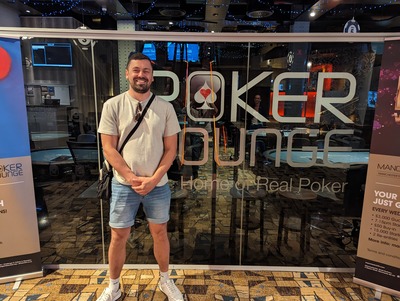 Lockdown changed a lot of things for a lot of people.
Lockdown changed a lot of things for a lot of people.
Some started side hustles, some learned a new language or got back on top of their fitness, others spent a fortune on their gardens.
For Danny Ryder though, lockdown served as something of a gateway into a world most of us only ever see on TV.
Who’s Danny Ryder?
He’s a 38 year old actor from Manchester (you might have seen him in Emmerdale, Holby City, Coronation Street, Hollyoaks, etc.), but that’s not why we went to meet him at Manchester235, one of Manchester’s best casinos.
Danny is also a poker player. A recreational one by his own admission, but nevertheless, he’s a player who has cashed over £100k in just a few short years – Danny’s journey into poker has gone from 0-60 in a very short space of time.
Having never even played the game until he was taught by travelling companions in 2017, he is now heading to Las Vegas to take part in the biggest poker competition in the world, The World Series of Poker (WSOP) 2023.
Given his unique route into the poker world and his lightning fast rise from novice status to cashing in some pretty big tournaments, we thought he would be an ideal candidate for an interview.
Getting Started with Poker

Danny’s first game of poker occurred on a balcony during some time away exploring the world; just a game between friends to pass the evening.
It was hardly a lightning bolt moment but it sparked enough of an interest in the game for him to explore the online poker rooms when he got back, where he played a few games, but never really took it seriously.
After hearing about a local poker league in Cheshire, though, he decided he wanted to try it live.
So in 2018, Danny ventured into a working men’s club in Northwich, sat down with a few regulars, and was immediately referred to as ‘fresh meat’ by the older gents he would be playing against.
He couldn’t shuffle a deck or cards, he only half knew the rules, and he was getting told off by the other players for making the wrong calls, but he was winning hands.
This turned into a regular weekly game for Danny and he began to do well in the pub league, known as The Nuts Poker League, before stepping it up and entering small change competitions at casinos in Manchester.
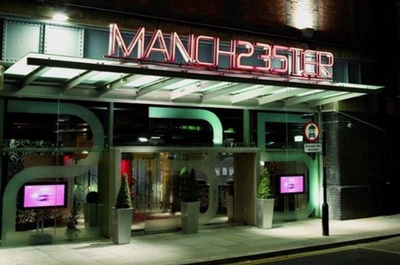 His first was a 30-40 player strong No Limit Hold’em game at Manchester235, the very place we sat down to talk.
His first was a 30-40 player strong No Limit Hold’em game at Manchester235, the very place we sat down to talk.
“It was a £20 competition and I’d been out in the afternoon so I was quite confident, and I won. I won £300 so I was buzzing at the time.”
He followed up with an 8th place finish in a similar competition a month later.
Now with more than just a passing interest in the game, Danny was regularly playing against people with decades of experience over him, and felt like he had a lot of catching up to do.
Then lockdown happened, work dried up, and Danny ended up living back at his Mum’s with a lot of time on his hands.
“I just thought, right, I’m going to spend every day studying. I studied anything and everything I could to try and catch up. So that was the turning point for me.”
With 30+ competitions under his belt in the 2 years since lockdown ended, including some great 5 figure wins, a turning point is an accurate description indeed.
Danny has turned poker into something of an alternative income – he won his biggest ever amount of €20,000 Euros just weeks before we met, and is incredibly blasé as he talks about it – and just 24 months after knuckling down to study the game properly, he is now set to compete at the highest possible level.
It costs $10,000 to buy into the World Series of Poker main event, not to mention the travel and accommodation costs, plus money for any of the other events you might want to enter while you are there, so it is a significant financial commitment, and the biggest event Danny has ever entered by a long shot.
The World Series of Poker 2023
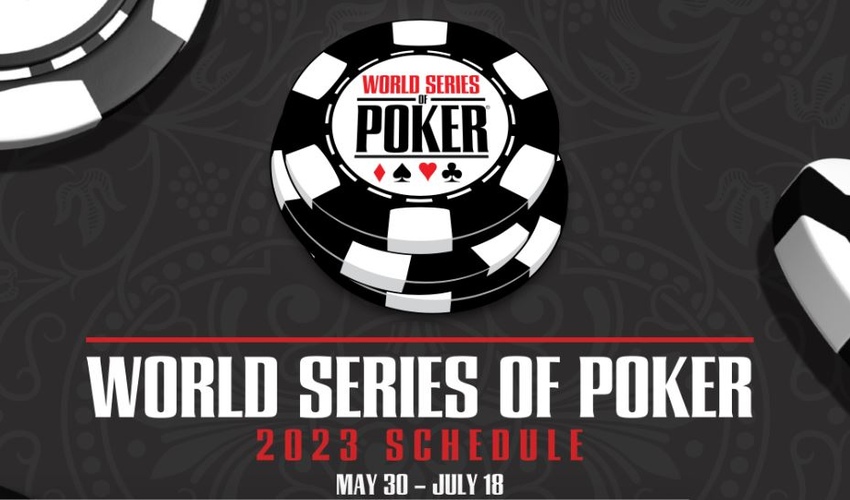
You might think that attending the biggest poker competition in the world, complete with televised coverage, celebrity players and countless people watching, would be a little nerve wracking.
Danny doesn’t feel that way. His life in front of the camera and on stage in front of a live audience makes him well equipped for the bright lights of Vegas and any attention that might come his way if he runs deep.
“I think I’ll be fine. I feel ready to be there. A lot of people are behind me. Everyone needs a bit of luck but anyone can beat anyone with the right mentality.”
There will be some learning on the job for him though.
“It’s a 2-hour blind structure on the clock which I’ve never played before, so I’m going to have to be a lot more patient.”
Blind Structure
How often the amount that must be bet on the blind rises, and by how much.
This is important because the blind structure dictates how long a tournament will last, and therefore what sort of strategy a player might use.
A shorter blind structure would encourage aggressive betting early on, whereas a longer 2-hour structure requires patience, and arguably allows ‘proper’ poker to be played as players bide their time.
So the occasion doesn’t phase him, but is he worried about being a recreational player going up against a bunch of pros?
Not at all, he even thinks it could be an advantage.
“Sometimes the random new players are the hardest ones to play because you just don’t know what they’re doing”
“A lot of professionals, you kind of know, you can put them on a range of hands and how they are playing it, because you know the strategy they’re playing.”
This is something he has been able to take advantage of before.
“I came out of a pub league so I was a really tight player and wouldn’t really bluff much, and I had to get out of that to really progress.”
“A lot of pros would look at me as quite a tight player and I knew what their perception was of me.”
“I remember there was one lad I played on stream, and I re-raised pre-flop and I’ve bet twice as though i’ve got a better hand. But someone told me he’d said he thought I was a tight player.”
Danny bluffed and won the hand. He knew what the other more experienced player thought about him and used this knowledge against him.
Talking further of the difference between recreational and professional players, Danny said:
“They know we can do alright in these fields. They don’t want us in these fields, because they know we are a threat to them. They want the rich businessmen who have got plenty of cash to splash about. Yeah, they’ve got an edge on us, but we’re capable of running deep in these tournaments like they are.”
But what about the possibility of investing so much money in this trip and coming back with nothing?
Danny has sold some of his action for the World Series, so the financial pressure isn’t so high as to become overwhelming.
Selling Action
Breaking the entry fee down into percentage units, and then selling a certain amount of them off as an investment.
A player could sell 50% of their action in a £5k competition, at a 1.3 mark up. This would mean that roughly £3.2k of the entry fee is paid for by investors (£2.5k + 30%), who would then take a proportionate share of any winnings.
So someone with 5% of the action of a player who wins £100k in a tournament with a £1,000 buy in, would pay £65 for that 5% (with a 1.3 mark up) and get back £5k (5% of £100k).
Having talked about his poker career on social media, a lot of non-players were aware of his recent success, and he even had offers from friends who were willing to invest large amounts in him for his WSOP attempt.
He’s glad, though, that he has only sold action to people who already understand the game.
“It’s nice that people wanted to invest who have just watched my progress, but I’m glad it’s only poker players who have took on my action in the end. It takes the pressure off me letting them down, because the likelihood is that I won’t cash. Only the top 15% cash out .”
So although he sounds confident and optimistic about doing well, he is also realistic about cashing in the competition, which seems like a pretty healthy mindset.
The Poker Community
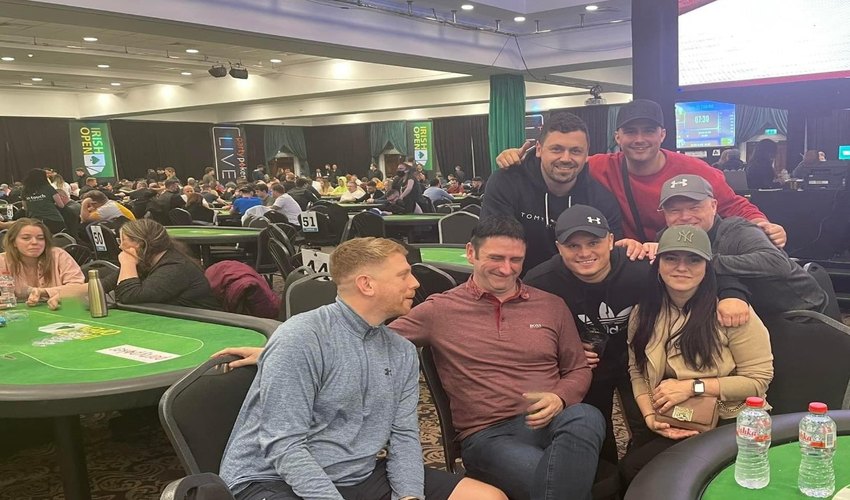
One thing that is clear from our chat, is that the poker community are a brilliant bunch.
Even though Danny is now entering competitions that have higher buy ins and winning larger amounts of money, he still likes to sell a large portion of his action to limit his own risk, and it is his poker friends who back him.
“I don’t play out of my means. I still sell a lot of my action like I’m doing for the World Series, I do it for smaller stuff as well. Like a £1,000 tournament I’ll always sell 50% normally. I could have it in my bankroll but I just think it’s a lot of money at the end of the day.”
This selling of action is a very common occurrence in the poker world Danny tells me, with players regularly backing each other when they aren’t playing in a competition themselves.
It’s a way to spread the cost for the individual competing, but also a way for players to support each other and have some skin in the game themselves.
What’s more, in a wonderful example of how the poker community come together, these things are almost always handled with a gentleman’s agreement rather than anything more official like a written contract.
Of course, someone could refuse to pay up if they hit a big win, but they would quickly be vilified and no one would ever back them again, so it keeps everyone honest as reneging on the deal would not be worth the backlash or the damage to their reputation.
Danny regularly backs other players himself, and has never had any issues, but then, if you are backing your friends, why would they want to rip you off in the first place?
Of course, that friendship doesn’t mean anything once the cards have been dealt.
“You’re there to get the money off each other at the end of the day. I have lots of friends in poker, but we’re friends when we’re at the bar after, not when we’re at the table.”
This ability to switch between going to war with each other and then going to dinner with each other is an interesting dynamic of the poker scene, and unlike so many other competitive scenarios where the supportive smiles might be painted on, the poker mob sound legit.
“The poker community is so friendly and supportive, and you wouldn’t think that in terms of gambling and money. But in poker there’s a lot of genuine happiness when someone you know has a winner.”
Players share tips and tricks with each other too, such as the recent advice Danny was given to buy dollars from someone already at the World Series if they have a big score and then bank transfer them the money to avoid fees.
Equally, an online player who wants to withdraw might come to an arrangement with a player who wants to deposit. They would transfer funds from their Poker Stars account to the account of the depositing player, and that player would send the withdrawing player funds via bank transfer, again to avoid fees.
These deals even extends to tournament play; Danny mentions several occasions where he has chopped it at the end with the final remaining players, although it’s not all about the money for him, he wants the trophies.
“My housemate laughs at me because if I’ve come out of a tournament and we’ve chopped it at the end so I’ve got the money but I’ve not won the trophy, I’ll feel gutted because I wanted the trophy. I’d even take less money for the trophy and he thinks that’s ridiculous.”
Chopping
An agreement between the final few players on the last table in a tournament.
If the first prize was £100k and the second prize was £10k, the final two players may agree to split that £110k equally between them.
This means both players get a very nice £55k instead of risking the possibility of only taking £10k from the competition if they came second.
“It was down to me and one other guy, so we chopped it and just played for the trophy”
There is a lot of trust involved in all of this, and it would soon fall apart if even just a few players began behaving dishonourably.
This in itself sounds like a community you would want to be a part of, but throw in the potential to win decent chunks of change and it’s easy to see why so many people love playing poker.
It boomed again after lockdown, Danny wasn’t the only one hitting the books and online poker courses, but most people don’t take that interest as far as he has.
Why Poker Keeps Him Interested
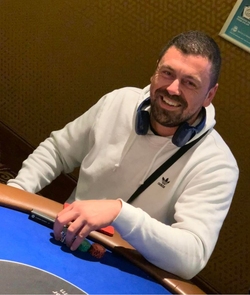 Talking to Danny about why he enjoys the game, it seems that the game of poker itself is only 50% of the challenge.
Talking to Danny about why he enjoys the game, it seems that the game of poker itself is only 50% of the challenge.
The equally enjoyable aspect, is learning other people’s games, reading them, and trying to outwit them. That’s the main attraction, because even if the game can be ‘solved’ mathematically, you can’t use maths to ‘solve’ individual people and their decision making.
“It’s always going to be an ever-changing game really with new strategies, because people are always trying to learn it.”
So is it more about skill or luck?
“I’d say it’s 70% – 80% skill and 20% – 30% luck.”
Of course, he doesn’t just mean the skill needed to understand the game, but the skill of understanding other people and reading their tells.
This isn’t the Hollywood movie tell, where a player always fiddles with their beard when they have a pair of Aces, but the bet sizes they go for, when they go for them, how aggressively they play, and sometimes how unconvincing an act they are putting on.
“A lot of full-time professionals play online using simulations and they work out you should bet this size on the flop, you should bet this amount on this board, but people find new stuff out and you have to change your game again.”
“You get a lot of young players who play GTO and they’ll run everything through a computer, and say you have to do this in that situation because you’ll win 60% of the time, and they think they’ve solved it. But if everyone played the same way then you just become like robots.”
“Learn how to exploit someone else, learn how they play, learn what they do.”
GTO – Game Theory Optimal
A mathematically ‘perfect’ way to play the game of poker based on calculated statistical probabilities.
This works in blackjack because the opponent, the dealer, has to stick to a strict set of rules, but this is not true with poker.
GTO would only work in poker if every single player stuck to it, at which point the game would become about nothing but the luck of the draw assuming everyone was at the same skill level.
The fact that people can make their own decisions in poker makes GTO useful to a point, but far from perfect.
For Danny then, it’s important to have a good understanding of GTO, but it’s by no means a rule book on how to play the game. In fact, if you were a player known to always play game theory optimal, everyone else would be able to predict your decisions and simply outmanoeuvre you.
He also wants to keep poker enjoyable, and taking it too seriously in this way is not conducive to having fun.
“I know people who have won hundreds of thousands and they’re miserable. I think getting sucked into poker being your full-time life could become not much of a life at all really.”
His status as a part-time player who competes in big events, straddling the professional and recreational sides of the game, seems to be spot on for keeping him engaged with poker, not to mention making him more unpredictable to those people who play full-time.
Potentially a difficult player to handle for the pros then, but he has no ambitions to go full-time himself.
“I want to be the best recreational player there is. If I won the World Series I’d still carry on playing, I’d still go back to my old pub league and play sometimes because they were some of the biggest laughs I had.”
He does still visit his old pub league to play every couple of months, and on his next visit he will have a World Series event to tell them about.
Whether or not he finishes in the money is down to the people he plays, the cards he is dealt, and the risks he takes, but he doesn’t plan on changing his approach, which seems to hinge on adaptability, instinct, and having no fear.
“A lot of people struggle to get out of the pub leagues because they play too cautiously. You can’t be scared to get knocked out of the tournament, so I’m just going to play it like I play it. You adapt to everyone you’re playing against in live poker.”
I can’t speak for him, but if Danny Ryder does get anywhere near the final table at WSOP 2023, I reckon we might see some very frustrated pros with no idea how to handle him.
Danny’s Competition History So Far
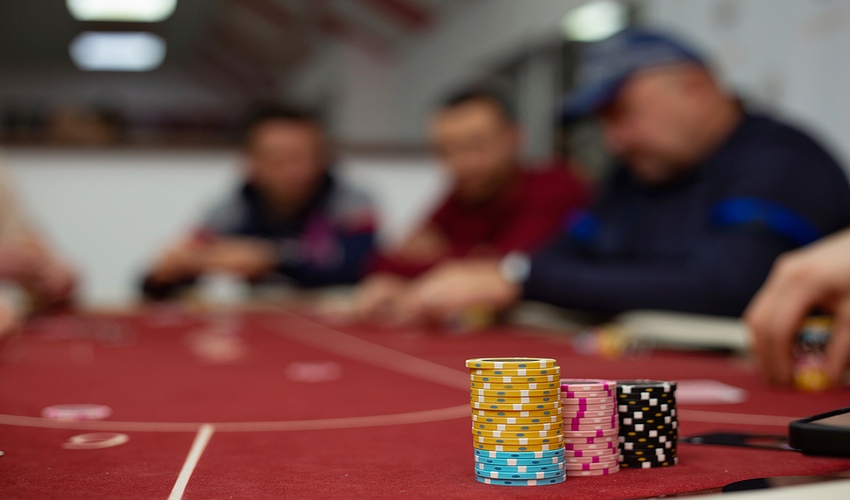
| Date | Location | Event | Place | Prize |
|---|---|---|---|---|
| 04-Jun-2023 | Malta | €1,000 + 100 No Limit Hold’em – Dark Knight by Domusbet High Roller | 15th | €3,090 / $3,309 |
| 01-Jun-2023 | Malta | €530 + 70 No Limit Hold’em – BOM Main Event | 33rd | €2,670 / $2,862 |
| 28-May-2023 | England | £220 + 30 No Limit Hold’em – Mini Main | 34th | £510 / $630 |
| 26-May-2023 | England | £500 + 60 No Limit Hold’em – WPT500 | 98th | £1,250 / $1,542 |
| 08-Apr-2023 | Ireland | €550 No Limit Hold’em – JP Poker Masters (Event #26) | 3rd | €20,620 / $22,503 |
| 19-Mar-2023 | England | £220 + 30 No Limit Hold’em – GUKPT Mini Main Event | 4th | £7,505 / $9,149 |
| 08-Mar-2023 | England | £220 + 30 No Limit Hold’em | 43rd | £515 / $616 |
| 01-Mar-2023 | England | £1,350 + 150 No Limit Hold’em – UK Open | 50th | £4,500 / $5,431 |
| 15-Feb-2023 | England | £220 + 30 No Limit Hold’em | 3rd | £9,500 / $11,560 |
| 11-Feb-2023 | England | £500 + 50 No Limit Hold’em – GUKPT Cup | 20th | £1,100 / $1,326 |
| 14-Dec-2022 | England | £270 + 30 No Limit Hold’em – One Dayer | 10th | £660 / $813 |
| 11-Dec-2022 | England | £300 + 40 No Limit Hold’em – The Hundred | 43rd | £800 / $981 |
| 04-Dec-2022 | England | £300 + 40 No Limit Hold’em – GUKPT Mini Main | 6th | £15,300 / $18,819 |
| 17-Nov-2022 | England | £220 + 30 No Limit Hold’em | 3rd | £12,615 / $14,993 |
| 21-Oct-2022 | England | £100 + 20 No Limit Hold’em – APAT Manchester Day 1B | 7th | £710 / $796 |
| 15-Oct-2022 | England | £200 + 20 No Limit Hold’em – £100 Bounty | 13th | £250 / $281 |
| 06-Oct-2022 | England | £220 + 30 No Limit Hold’em | 18th | £700 / $795 |
| 29-Sep-2022 | England | GUKPT £900 + 100 No Limit Hold’em – GUKPT Main Event | 36th | £2,150 / $2,309 |
| 15-Sep-2022 | England | £220 + 30 No Limit Hold’em | 20th | £515 / $594 |
| 09-Sep-2022 | England | £220 No Limit Hold’em | 19th | £650 / $747 |
| 25-Aug-2022 | England | GUKPT £900 + 100 No Limit Hold’em – GUKPT Main Event | 12th | £5,200 / $6,136 |
| 11-Aug-2022 | England | £220 + 30 No Limit Hold’em | 17th | £660 / $796 |
| 05-Jun-2022 | England | £130 No Limit Hold’em | 19th | £360 / $450 |
| 24-May-2022 | United States | $100 No Limit Hold’em – Super Stack | 11th | $306 |
| 12-May-2022 | Scotland | GUKPT £670 + 80 No Limit Hold’em – GUKPT Main Event | 19th | £2,300 / $2,832 |
| 18-Apr-2022 | Ireland | €250 No Limit Hold’em – Tag Team Event (Event #39) | 3rd | €580 / $626 |
| 20-Mar-2022 | England | £220 + 30 No Limit Hold’em – GUKPT Mini Main | 33rd | £680 / $896 |
| 17-Feb-2022 | England | £220 + 30 No Limit Hold’em | 4th | £5,150 / $6,987 |
| 12-Nov-2021 | England | £200 + 20 No Limit Hold’em – Sky Poker Tour Manchester | 10th | £1,350 / $1,808 |
| 05-Sep-2021 | England | £180 + 20 No Limit Hold’em – Last Call | 4th | £2,005 / $2,781 |
| 15-Nov-2019 | England | £115 + 15 No Limit Hold’em – Deepstack | 28th | £295 / $382 |
| 18-Apr-2019 | England | £90 + 10 No Limit Hold’em | 6th | £1,260 / $1,639 |
| 16-Apr-2019 | England | £100 + 15 No Limit Hold’em | 36th | £280 / $364 |
| 13-Jun-2018 | England | £25 + 5 No Limit Hold’em – Big Wednesday | 8th | £80 / $106 |
| 10-May-2018 | England | £15 + 5 No Limit Hold’em – 20 Pounder Thursday | 1st | £290 / $392 |
